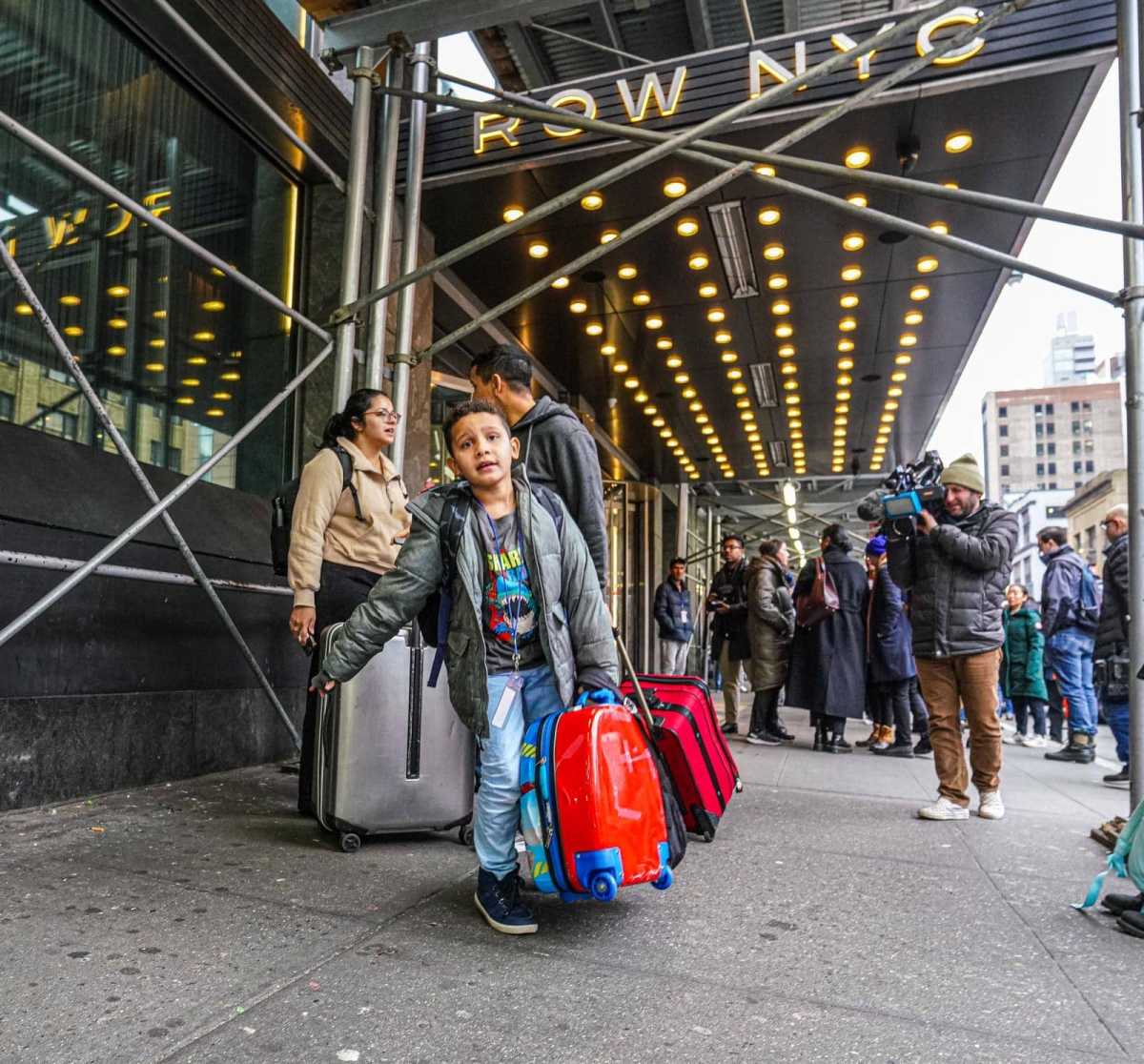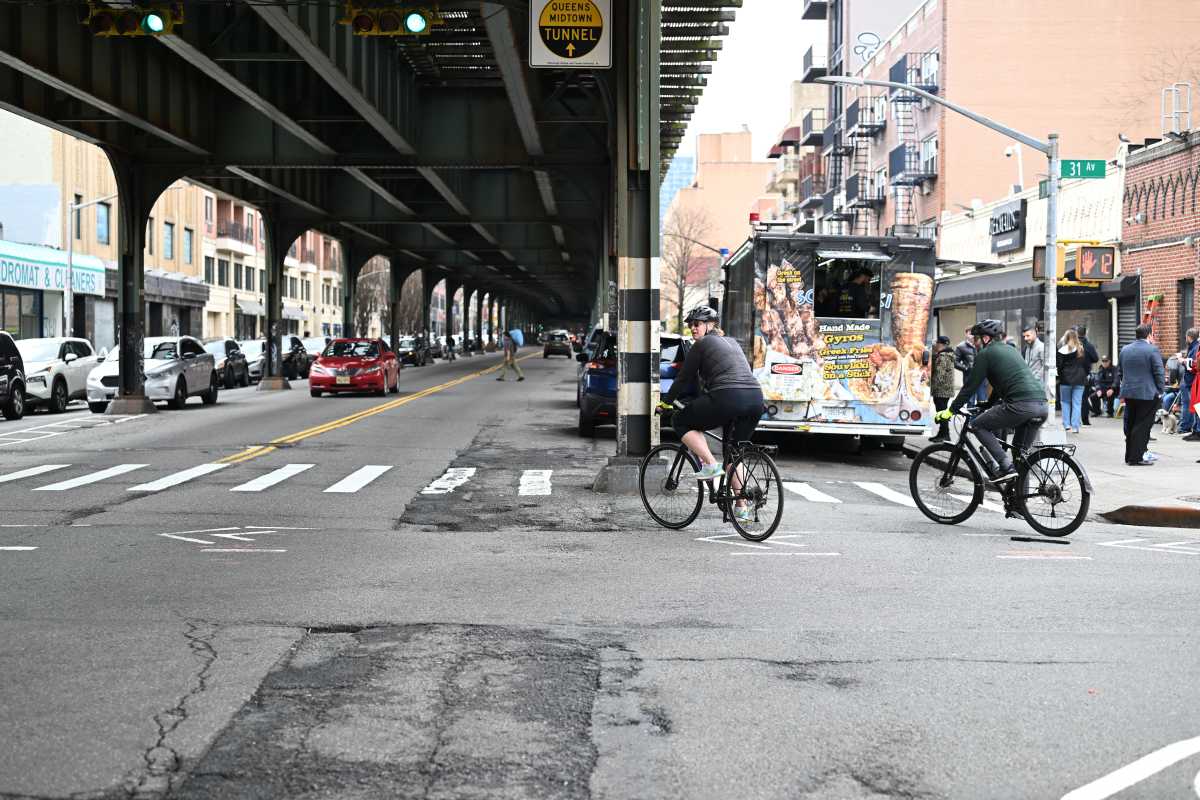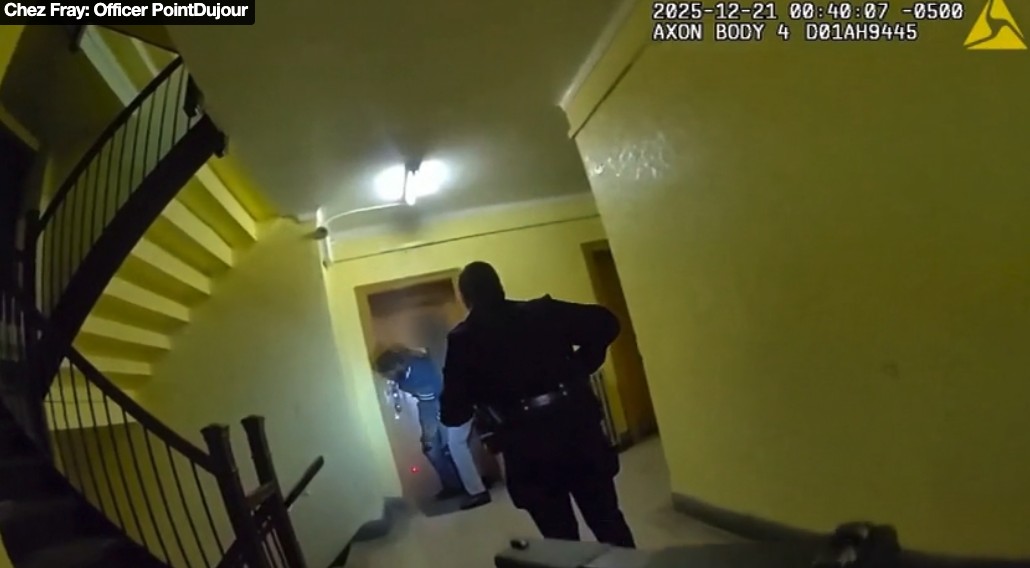City Comptroller Brad Lander announced at a press conference Monday that he has launched an investigation into Mayor Eric Adams’ policy to evict migrant families after 60-day hotel stays, and claimed the policy is leading to pregnant women and young families being kicked to the curb.
Lander, who spoke Jan. 9 outside the Row Hotel on 8th Avenue, said that it was unconscionable to be evicting families in cold temperatures and said the policy is cruel.
“This decision to kick families out of shelter in the middle of winter, to displace kids from their school in the middle of the school year is honestly one of the cruelest things that New York City Hall has done in generations,” Lander charged as immigrant families left the hotel directly behind him.
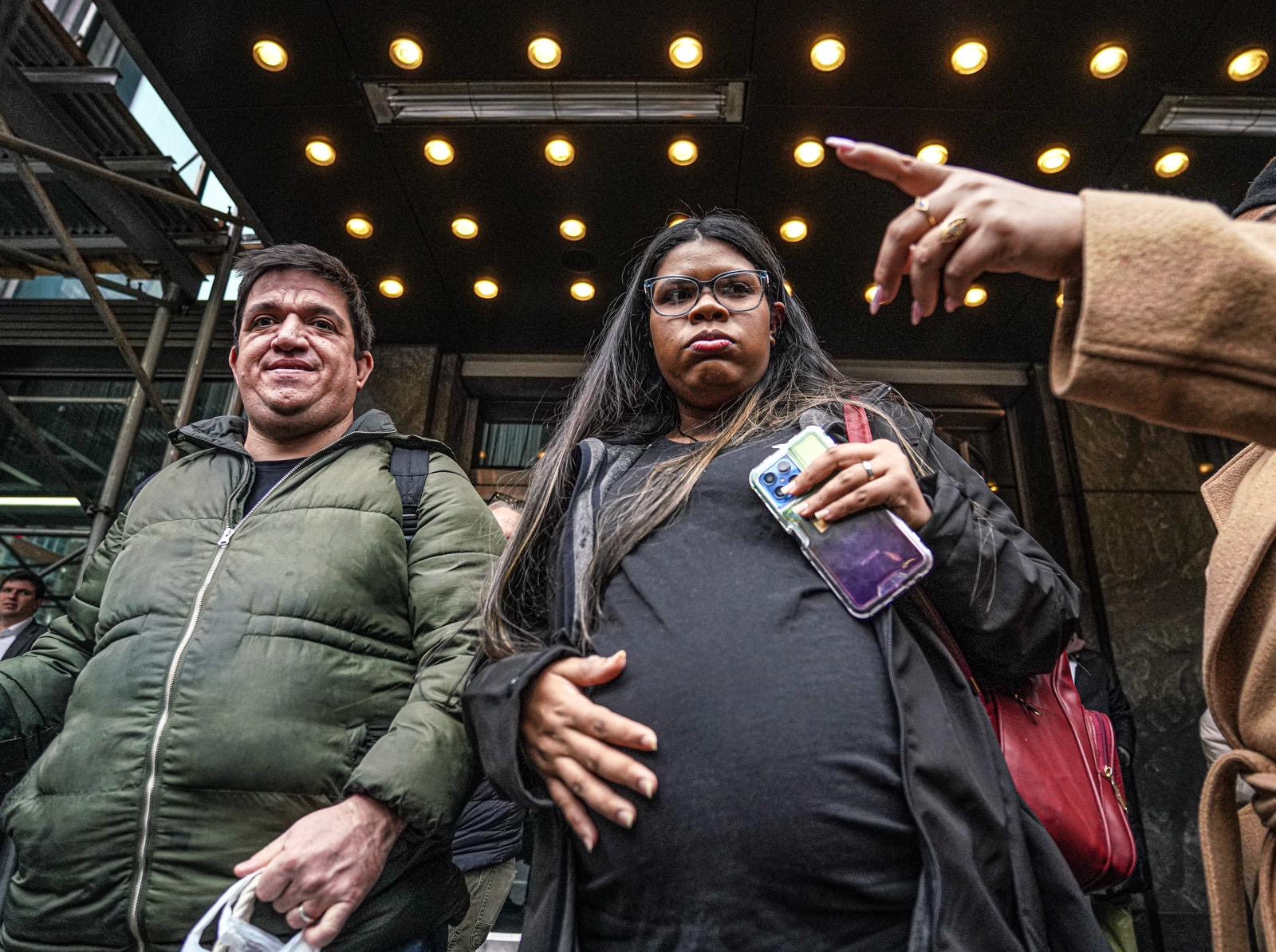
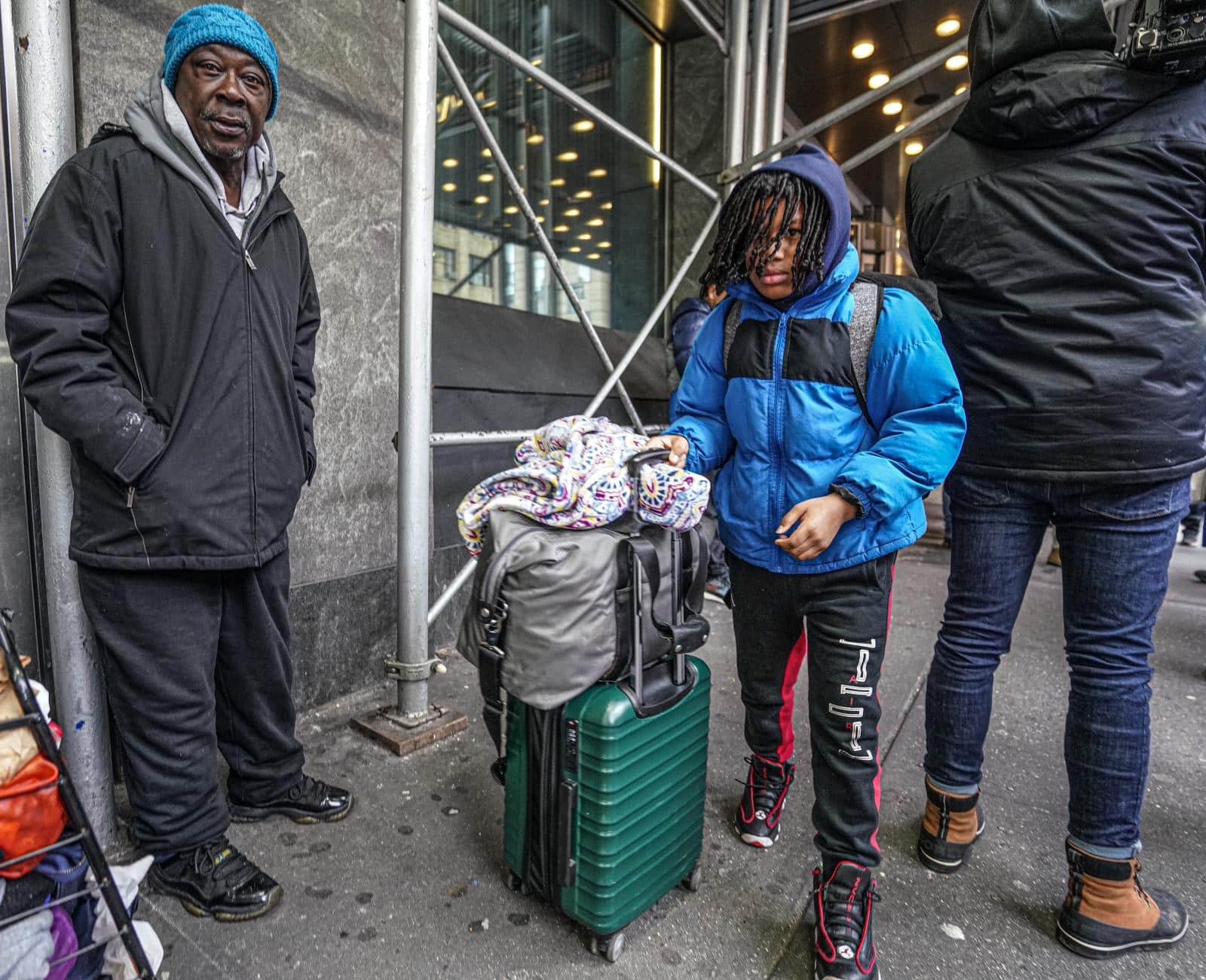
Lander, a staunch critic of Adams’ decision to evict migrant families, said the city should not be so heartless.
He said that he has officially opened an investigation into the City’s implementation of the 60-day shelter limit, pledging to probe the protocols and procedures, along with the effects the policy is having on the people who are being evicted.
“On top of its cruelty, it has been poorly communicated, so families aren’t aware of their options,” Lander said. “We’re gonna launch this investigation because we need to know the answer to a whole bunch of questions: what information is actually being provided to people, are there protocols for the 60 days?”
Immigrant families could be seen coming in and out of the hotel at the time of the press conference.
One immigrant was an eight-month pregnant mother called Maria, who said she had spent her last night in the Row Hotel. She was outside the hotel clutching her swollen belly and standing alongside her husband David. The pair said that they had been evicted, less than a month before their baby is due.
The couple were among the dozens of families who could be seen pushed their way through the Row Hotel’s revolving doors, with many children hauling luggage behind them. Appearing sullen and concerned, many were concerned about their future.
“If [Maria] is eight months pregnant? Can’t they just say, you could stay here for one more month until you give birth? But there does not seem to be any such policy,” Lander said, after learning of Maria’s predicament.
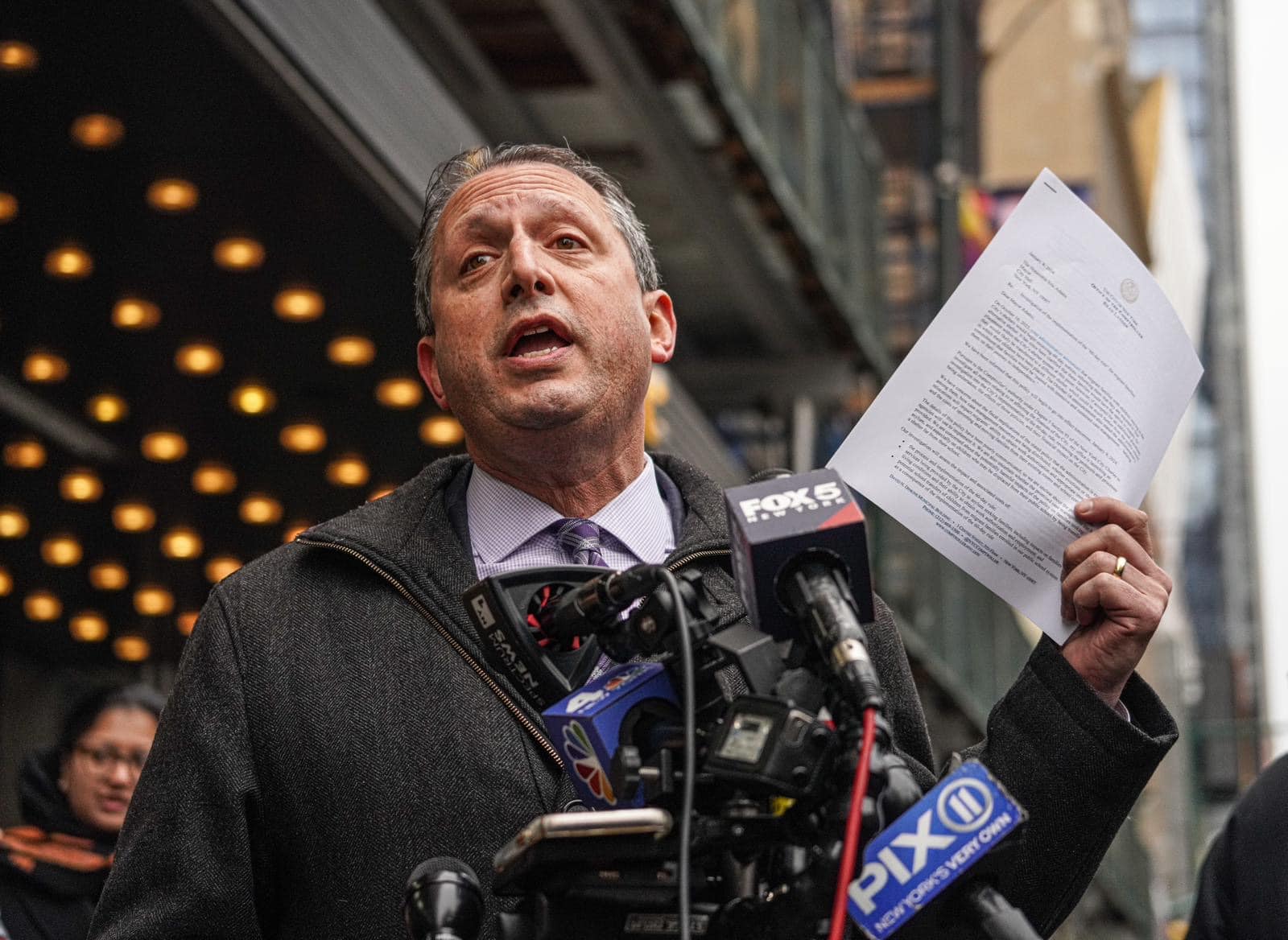
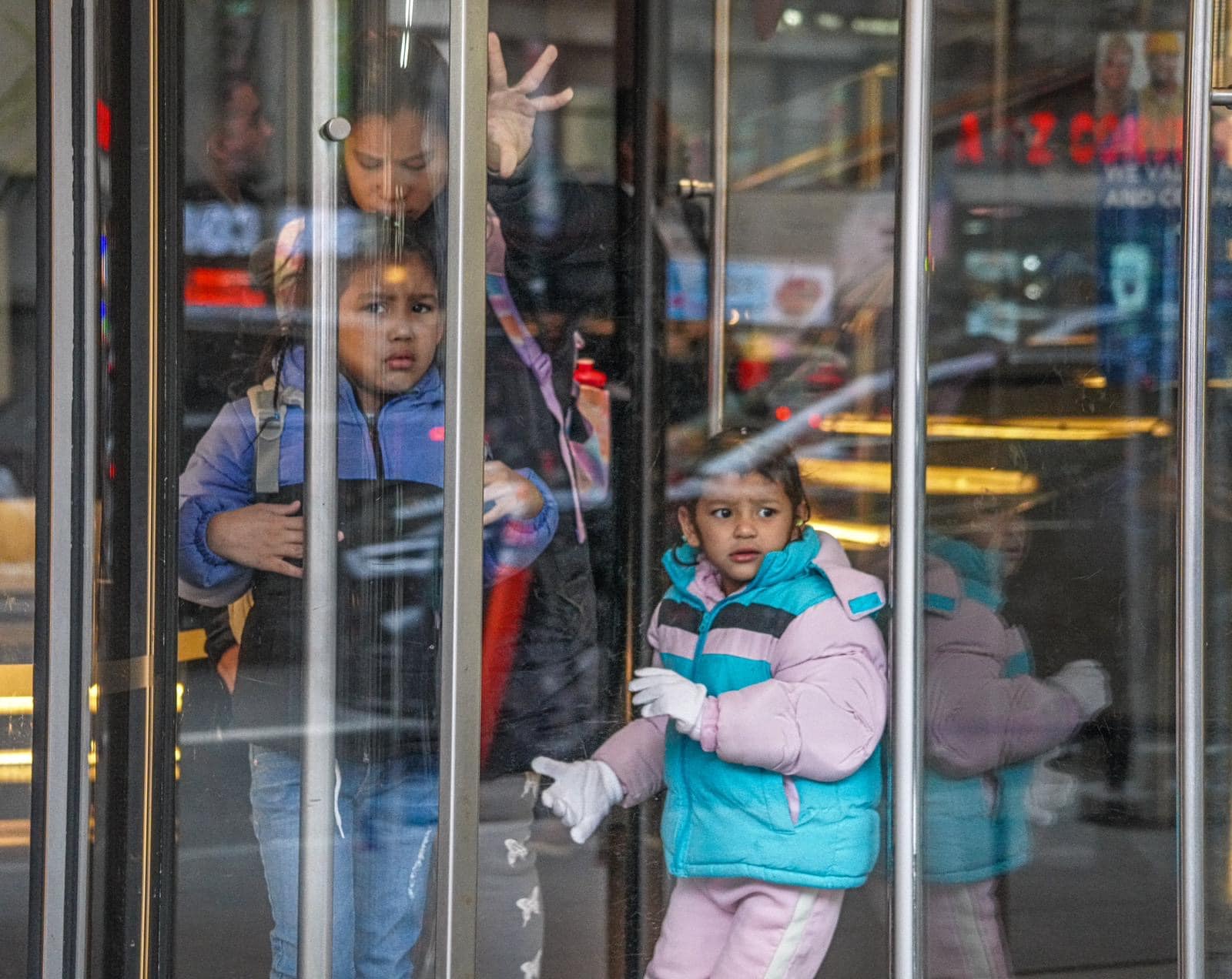
Lander, at the press conference, also brandished a copy of a letter his office sent to City Hall requesting more information.
The letter, however, came less than 24-hours after Adams himself pledged that no child would sleep on the streets of the Big Apple.
“Anyone who believes that this administration, we’re creating an environment in which children and families will sleep on the street, they’re not hearing our message over and over again,” Adams said from City Hall on Jan. 8. “This is not going to be a city where we’re going to place children and families on the street and have them sleep on the street. That is not going to happen.”
On Jan. 9 a spokesperson for City Hall called Lander’s investigation “puzzling,” while also stating that the 60-day cap is an attempt to help people relocate elsewhere. The city argues that process of helping immigrants find new accommodation is working.
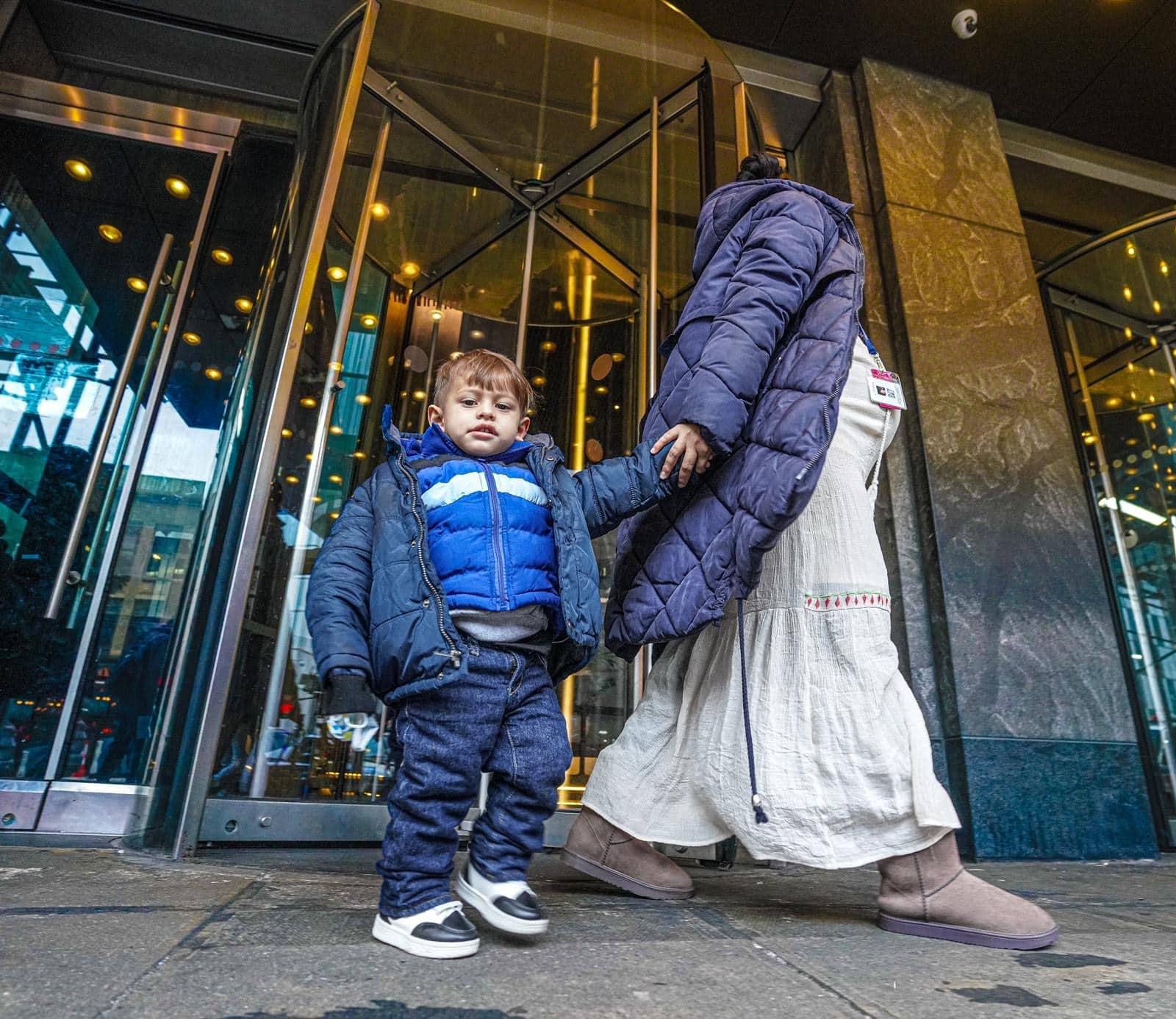
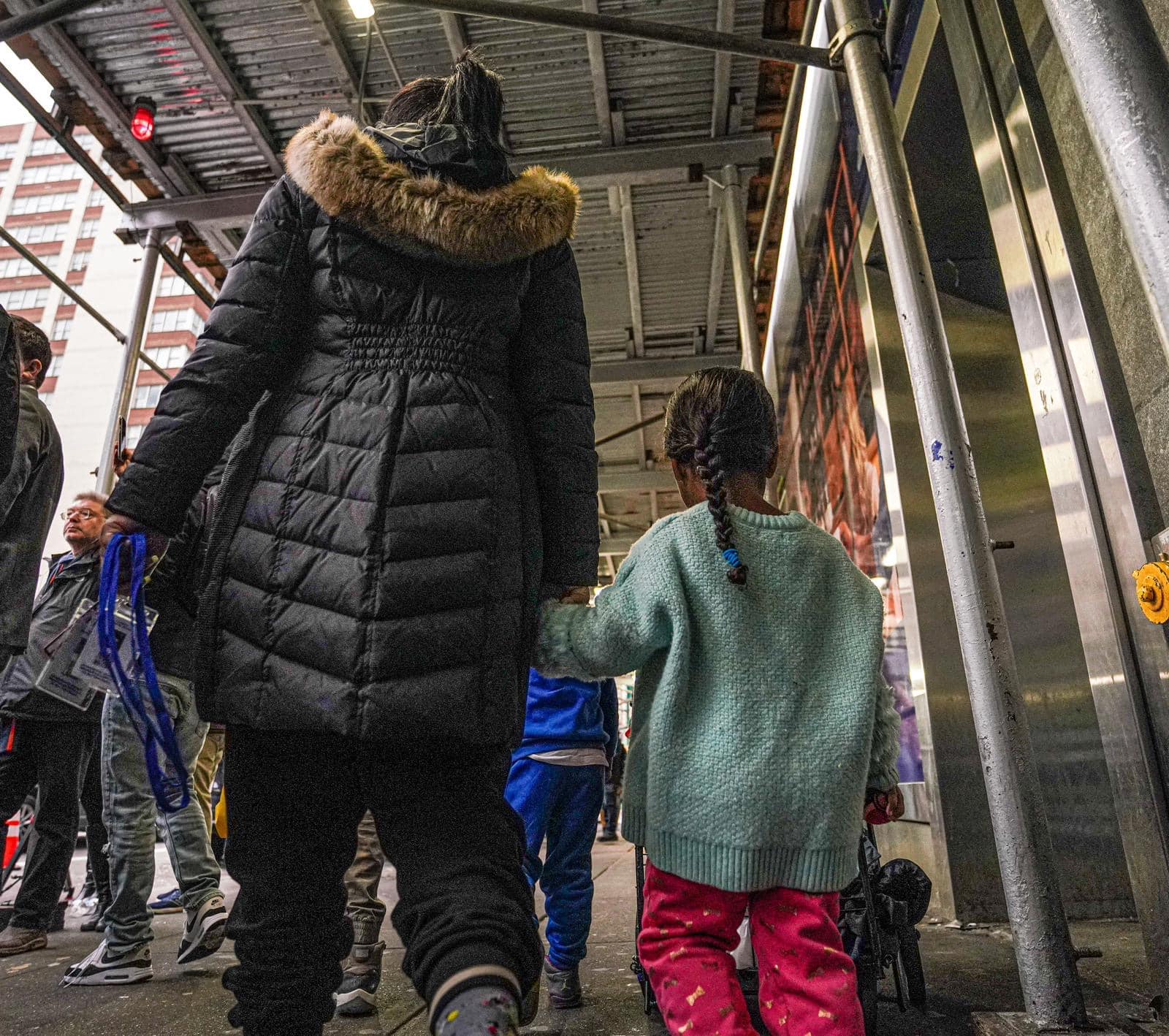
“As New York City leads the nation in managing this national humanitarian crisis, our focus has always been and continues to be connecting people with the resources they need in order to resettle and complete their journeys. Our system is clearly working — nearly 60 percent of migrants who have been in our care have taken that next step, and this is another tool in our very limited toolbox to help people do so,” the spokesperson said.
The spokesperson stressed that New York City is not the only location implementing such a rule, and that city officials have been in contact with Lander’s office regarding how information is being distributed.
“Since this policy — which places like Chicago, Denver, and the State of Massachusetts are also similarly implementing — took effect, we have been in close contact with the comptroller on how this plan would work, proving information on case management to school placements, which is why the step he is now taking is particularly puzzling. Most New Yorkers agree that a shelter system should be temporary, especially for children who need consistency and permanency. That is why we are so focused on helping people move from shelter. A tiny hotel room is no place to grow up or raise a family.”

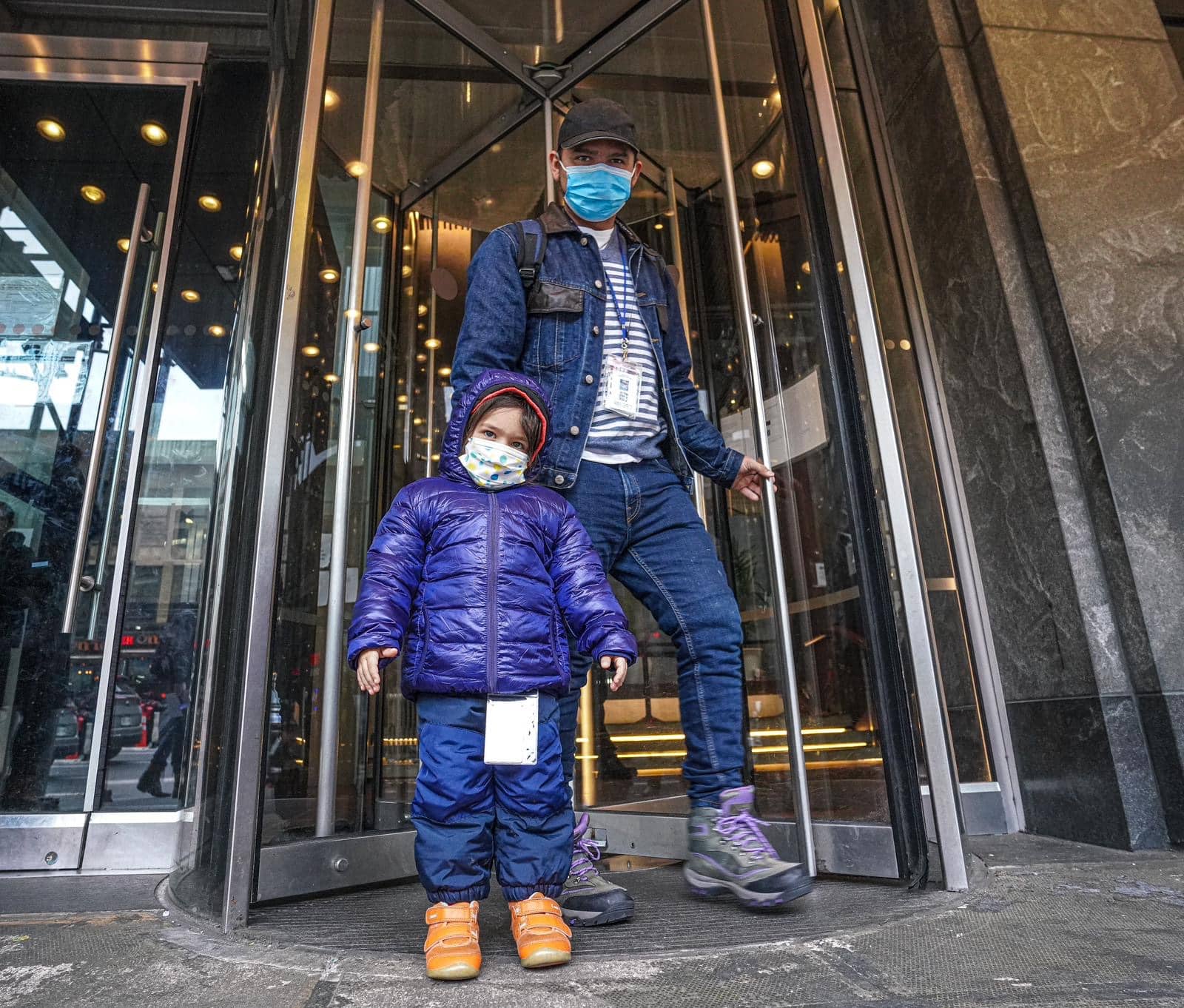
Read more: City Council Overrides Mayor Adams’ Veto of Police Bill



